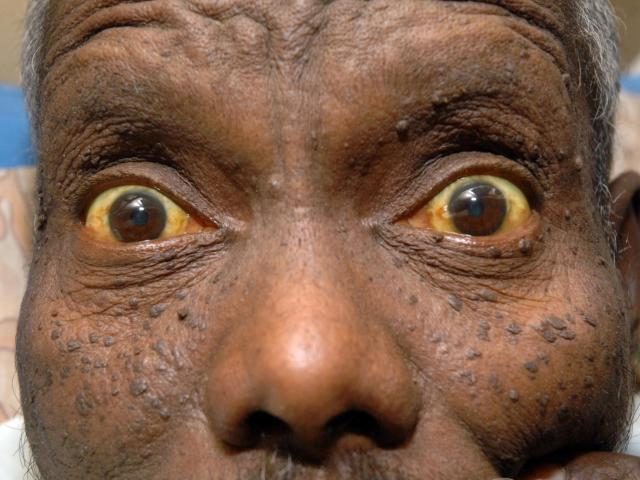Health Pancreatic cancer: What are the symptoms of 'silent killer' set to kill more than breast tumours?

Pancreatic cancer will claim an increasing number of lives over the next decade and overtake breast cancer to become the fourth most deadly form of the disease overall, a charity has warned.
It is often difficult to diagnose pancreatic cancer early enough to stop it from spreading, because the symptoms are so vague.
A lack of new diagnosis methods means that by 2026, 11,279 people are predicted to die every year from the disease – a 28 per cent rise on the 8,817 in 2014, said Pancreatic Cancer UK.
The only live-saving treatment available for pancreatic cancer is an operation to remove the tumour.
However, in 92 per cent of cases, the cancer is not caught early enough for surgery, meaning it has the lowest survival rate of all cancers.
The signs of pancreatic cancer, sometimes called the 'silent killer', may come and go at first. These are the most common symptoms.
Jaundice
Anyone with jaundice – yellow skin and whites of the eyes – should see their GP straight away. People who develop jaundice may also feel itchy and notice pale faeces and dark urine.

The yellow pigmentation is caused by a build-up of a substance called bilirubin.
It can also be caused by non-cancerous conditions such as hepatitis and gallstones, but should always be taken seriously and everyone over 40 with the condition is referred to a specialist for testing.
Abdominal pain
The pancreas is a large gland buried deep inside the body and a common symptom of pancreatic cancer is pain the tummy area, which can come and go and spread to the back.
The pain is often worse when lying down or after eating.
Unexplained weight loss and loss of appetite
Sudden, unintentional weight loss can be the sign of a serious illness like pancreatic cancer, although it can also take place after a stressful event.
Weight loss can take place because the pancreas plays an important role in the digestive system, which can be disrupted by the cancer, so food is not properly absorbed by the body.
Indigestion
Indigestion is a symptom of pancreatic cancer but has many other causes and isn’t usually linked to the disease – making it more difficult for doctors to diagnose.
Changes to bowel habits
Because digestion is affected by pancreatic cancer, the body can stop breaking down fat in food, which is then excreted in large amounts.
This can make stools large, pale and oily, with a particularly disgusting smell. They can also be difficult to flush down the toilet.
Diarrhoea and constipation can also be caused by the disease.
Difficulty swallowing
Another symptom that can be caused by other health problems, some people with pancreatic cancer find it difficult to swallow and may find themselves coughing, choking or feeling as if food is stuck in their throat.
Nausea
Pancreatic cancer can make you vomit and feel sick.
Recently diagnosed diabetes
The pancreas produces a hormone called insulin, which helps control blood sugar levels, but cancer can interrupt this process.
Diabetes occurs when a person’s blood sugar levels become too high. This can be caused by a lack of insulin, so it is recommended that GPs refer patients over 60 who have lost weight and have recently been diagnosed with diabetes for a scan.
Comments
Post a Comment